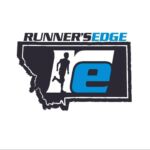Running is a gift. It brings us joy and gives us opportunities to seek adventure. We explore unknown trails at moderate to hard intensities without giving much thought to how each run is affecting our body in a positive or negative way. In this article let’s look at how an easy run following a harder workout will bring you closer to your fastest self and how one discovers what their unique “easy” pace.
I tell all my athletes that we become faster on our easy days and not on our hard running days. It is the day(s) following a hard workout when we build new capillaries, grow muscles and create enzymes for energy metabolism. In order for these intricate processes to occur, we must allow our bodies to recover fully from an intense running workout by running easily the following day, or perhaps even two or three days depending on how long it takes you to properly recover.
Easy is subjective; it is important you get an objective feel for easy pace then you can go out and run that effort anywhere. Here is how to objectively define easy:
1. Run a flat 5k race and formulate your pace per mile and then add on 2:30 to 3 min to that pace. For example if you are a 20 min 5k runner, your average pace is 6:26 min per mile so your easy pace the next day would be about 9 min to 9:30 min per mile on flat ground. Then practice a few easy runs on flat ground at ~9 min mile to get a feel for that effort. When you start sensing your correct easy effort, you can run more challenging terrain, like hills, while maintaining that same easy effort level at a slower pace.
2. Wear a Heart Rate Monitor (HRM) in a 5k race and find your HR max which is usually the highest HR produced near the end of the race. I normally have my athletes perform 2 HR Max tests to confirm HR Max. After you obtain HR Max you multiply that number by .70 to obtain easy HR. For example: if max HR noted was 170 beats per minute (bpm) then easy HR would be 119 bpm. I then tell my athletes to wear their HRM for a few weeks to get a feel for that pace/effort. After you become familiar with that effort then you have a subjective feel for easy pace, based on your objective measure, and you no longer need to wear a HR monitor.
If you truly run easy on your easy days, you will get faster and stronger. Trust the wisdom of your body and listen to your inner voice that will guide you to what easy pace is [or don’t trust it, and just use one of the methods listed above J]. If you do this, you will be transformed into a new faster self.
DREAM * BELIEVE * TRAIN * CELEBRATE
Nicole Hunt
Speed Endurance Coaching
Please contact me anytime with questions


